Emergency Politics in the Third Wave of Democracy
Emergency Politics in the Third Wave of Democracy
A Study of Regimes of Exception in Bolivia, Ecuador, and Peru
Claire Wright
Lexington Books
Lanham Boulder New York London
Published by Lexington Books
An imprint of The Rowman & Littlefield Publishing Group, Inc.
4501 Forbes Boulevard, Suite 200, Lanham, Maryland 20706
www.rowman.com
Unit A, Whitacre Mews, 26-34 Stannary Street, London SE11 4AB
Copyright 2015 by Lexington Books
All rights reserved . No part of this book may be reproduced in any form or by any electronic or mechanical means, including information storage and retrieval systems, without written permission from the publisher, except by a reviewer who may quote passages in a review.
British Library Cataloguing in Publication Information Available
Library of Congress Control Number: 2015952385
ISBN: 978-1-4985-1527-6 (cloth : alk. paper)
eISBN: 978-1-4985-1528-3
 The paper used in this publication meets the minimum requirements of American National Standard for Information SciencesPermanence of Paper for Printed Library Materials, ANSI/NISO Z39.48-1992.
The paper used in this publication meets the minimum requirements of American National Standard for Information SciencesPermanence of Paper for Printed Library Materials, ANSI/NISO Z39.48-1992.
Printed in the United States of America
Contents
Figures
The Relationship between the Norm and the Exception, According to Decisionism |
The Relationship between the Norm and the Exception, According to Republican Exceptionalism |
The Relationship between the Norm and the Exception when the Exception Becomes the Norm |
The Reciprocal Relationship between the Norm and the Exception |
The Exception as Decision within the Norm |
Models of Reaction within Republican Exceptionalism |
Tables
Types of Politics |
Paradigms of Emergency Politics |
Constitutional and Legislative Models of Emergency Politics in 18 Latin American Constitutions |
UN Data on Regimes of Exception in Latin America |
Exceptional Situations and Exceptional Measures in Regimes of Exception in Latin American Constitutions |
This volume is the result of reflections, fieldwork, and analyses that have taken place over several years. Many people and institutions have had an important part to play in this and I am indebted to all of them. Any oversights or errors are clearly my responsibility. On a personal level, I hope to have made a small contribution to understandings of emergency politics in practice and the use of regimes of exception in part of Latin America. The issue of emergency politics is one that concerns and challenges me, and I hope that it is clear throughout this text.
The seed of this volume was sown in the summer of 2004 when Ingeborg Schwarz offered me an internship at the Inter Parliamentary Union. As a student of foreign languages and literature, the opportunity to spend a couple of months in an organization dedicated to both democracy and human rights was decisive for me and undoubtedly set me on a new academic path. The study that I carried out during my internship at the IPU on the impact of anti-terrorism measures on press freedom laws introduced me to the fascinating and concerning world of emergency politics, a world that I continue to try to fathom up until the present day. I would like to take this opportunity to thank Ingeborg and the IPU for giving me the chance to discover a real passion.
Publishing as a young scholar on topics that are far from mainstream can prove rather tricky. I would like to thank Lexington Books for accepting this project and working with me with great professionalism throughout the process. Both Justin Race and Joseph Parry have provided great support, insights and enthusiasm and I am extremely grateful to them both for their part in the finished volume.
The content of this book owes a great deal to the research I carried out during my PhD and Masters theses, and I am indebted to Salvador Mart i Puig and Pilar Domingo for all their time, support, advice, and insights. Furthermore, I would like to acknowledge the academic and institutional support received during my postgraduate studies at the Universidad de Salamanca in Spain, particularly from Manuel Alcntara Sez. Likewise, I am grateful to the Universidad Autnoma de Nuevo Len in Mexico for giving me the chance to continue to do what I love: research and lecture on Latin American Politics.
At different stages of this study, I carried out research visits that were fundamental in moving things forward. I am very grateful to Felipe Burbano at Flacso Ecuador, Detlef Nolte at the German Institute of Global and Area Studies (GIGA), and Matt Flinders at the Crick Centre for the Public Understanding of Politics at the University of Sheffield for offering me the time and space to undertake fieldwork, organize, and analyze the information, and revise this volume. Furthermore, I would like to acknowledge the support received from two research projects financed by the Instituto Internacional Cataln para la Paz headed by Anna Ayuso and Salvador Mart i Puig, respectively, which gave me financial support to undertake fieldwork in both Peru and Ecuador. I would also like to thank Ana Soliz Landivar for her help in carrying out fieldwork in Bolivia.
As well as the key support of my two mentors, it is important to acknowledge the time and efforts of several others colleagues who took the time to review earlier progress with this study and offer their feedback. I am indebted particularly to Manuel Alcntara, Alison Brysk, Renato Cristi, Agustn Ferraro, Roberto Gargarella, Rafael Grasa, Claudia Heiss, Mariana Llanos, Andrs Meja Acosta, Detlef Notle, Timothy Power, Almut Schilling-Vacaflor, and Guillermina Seri. I hope to have moved forward in ways that they suggested and highlighted findings which they believed should be given more emphasis. Any shortcomings are my full responsibility.
Finally, I would like to support my family for their moral and practical support. Special thanks go to my mother, Alyson, for her arduous work on the manuscript and to my father, Graeme, for his sound advice on practical issues. Nick and Bern deserve special mention for keeping me buoyant. I apologize to them and to the rest of my UK and Mexican families for all of those times that I have been distracted or absentminded in my determination to finish and improve this volume. Particular thanks go to my loving husband, Salvador Alvdrez, for revising my manuscript andmost importantlyfor consistently supporting me and inspiring me to be the best I can be.
Special mention must be made of the Bolivian, Ecuadorian, and Peruvian experts who offered their time and ideas during personal interviews carried out over the course of several years. While their names have not been included in the volume for the sake of anonymity, their contribution to the study is invaluable. Carrying out fieldwork in Latin America is a truly humbling experience, due to peoples kindness and willingness to offer you their side of the story. This volume is dedicated in general to the multitude of people who actively support democracy and human rights in the region and in particular to a dear Bolivian friend who sadly is no longer with us. Narda: gracias por todo.
Notes
.Derechos Culturales y Polticos de los Pueblos Indgenas y su Impacto en el Desarrollo, financed by the ICIP (Instituto Cataln Internacional Para La Paz).
.Derechos culturales y polticos de los pueblos indgenas y su impacto en la gestin de recursos medioambientales. CEALCI 10/08, financed by the Fundacin Carolina.
Emergency, exception, urgency, discretion.... These evocative concepts give rise to a whole range of questions that together form a very broad research agenda. For instance, what do these abstract concepts mean in and for political life? Moreover, do they sit comfortably with the ideals of democracy? More specifically, in what circumstances do events become a question of emergency, exception, urgency, or discretion, and what measures are taken in their name? And crucially, what have these concepts meant for governments and citizens, at different times and in different places?
Next page
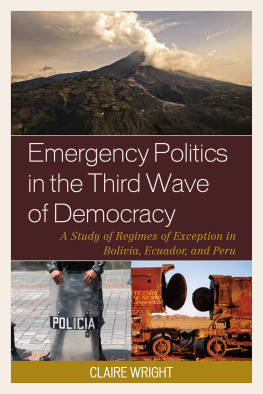
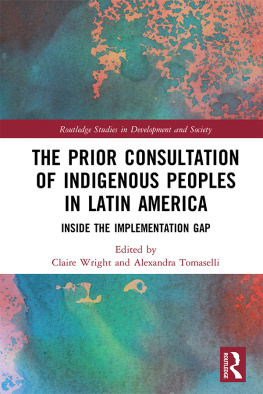
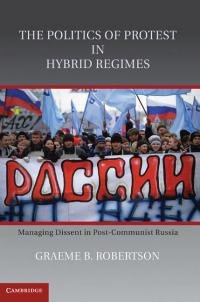


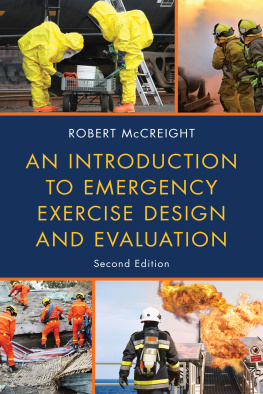

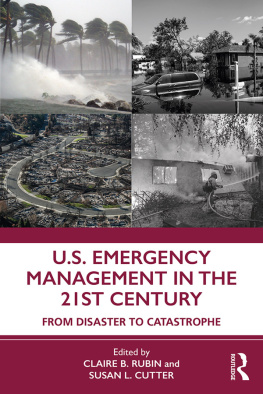

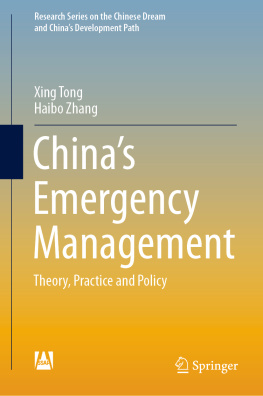
 The paper used in this publication meets the minimum requirements of American National Standard for Information SciencesPermanence of Paper for Printed Library Materials, ANSI/NISO Z39.48-1992.
The paper used in this publication meets the minimum requirements of American National Standard for Information SciencesPermanence of Paper for Printed Library Materials, ANSI/NISO Z39.48-1992.